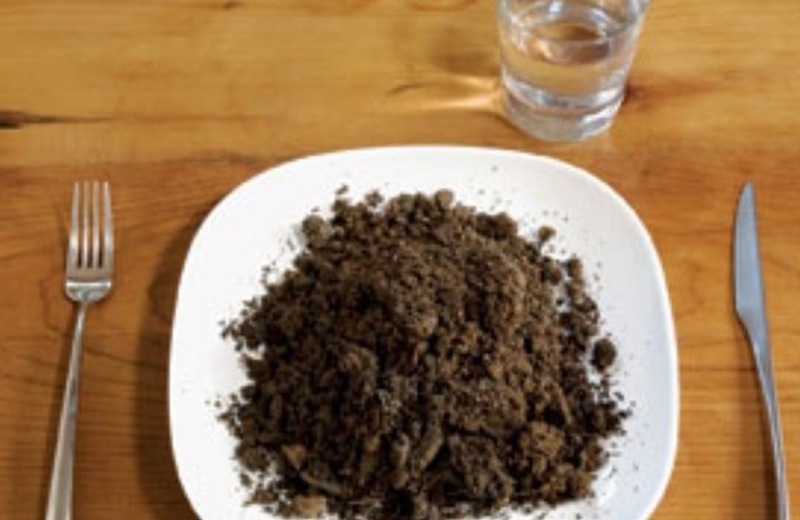When somebody says something really obvious, we usually tend to ignore it and not pay enough attention. Why is it we don’t feel the need to know about things that might one day prove to be valuable to us and others? I was in the park the other day, sitting on a bench trying to read my book. That is when I heard this very interesting conversation between two friends:
He says: I thought I should tell you this. I think it is important.
She says: Ummm ok. Is everything alright?
He says: Yes. You remember my little niece who fell ill recently. She was so sick that we were all really scared of losing her.
She says: Yes, I remember. Isn’t she the one who eats mud?
He says: Hey! She is only 3 years old. And yeah, she eats mud. So did all of us at her age. My grandmother even thinks it is due to some deficiency and she will outgrow it, as she grows older.
At this point, I am intrigued and embarrassed. Embarrassed because as a child I also used to eat mud. Intrigued because I want to know more.
He says: The funny thing is that her geophagia- the practice of eating soil intentionally was the reason for her getting so sick. (Geophagia – that thing even has a scientific name?) The soil that she had consumed was infested with these ‘worm eggs’ that had made her fall so sick with severe diarrhoea.
She says: No kidding. Are you talking about ‘Helminth eggs’? Everything you need to know about Helminths – Well, almost everything
He says: Oh! So you know about Helminth eggs?
She says: Of course. Helminths are worms that are widely present in areas, which are known for poor sanitary conditions and where open defecation is widely practised. The larvae of these worms, when consumed cause a variety of infections in people. But, where did your niece find soil that was contaminated with Helminth eggs? Is there any open defecation spot near her school?
He says: Oh my God! The school uses an open ground nearby as a makeshift playground. A part of that ground is also being used by the local communities as an open defecation spot. You know what? When I went to pick her up from school the other day, her class teacher told me that there were atleast a dozen other children with gastro-intestinal infections.
The two friends did not realise that they now had a keen listener. I recalled the numerous occasions when I had been taken to the doctor as a child because of tummy and intestinal infections. The two friends continued their discussion on sanitation and hygiene practices of pre-schoolers.
She says: I recently read a report by Water Research Commission, which stated that, pre-schoolers are at a greater risk for getting exposed to these ‘Helminths infections’. They are infected by not just ingesting soil, but also because of inadequate hand washing, consumption of fruits and vegetables that are not properly cleaned, and consumption of food and drink on which flies sit.
He says: Is that all or is there something else you are going to frighten me with?
She says: Oh, there is a lot more. For instance, one type of Helminths – hookworm, are transmitted when the skin is in direct contact with the contaminated soil, like walking barefoot.
He says: That means I should take care to see that my niece doesn’t go out to play barefoot. But is there any other way that children get infected?
She says: Children can catch infections from other children and adults who are already infected. The Helminth eggs live under fingernails and can be easily passed on from one person to another. Extra care has to be taken with kids frequently using public swimming pools.
He says: How do I know if a child or adult is infected? Are there any signs of Helminths-related infection?
She says: For hookworm, itching and localised rash are the initial signs, since the Helminths larva penetrate the skin. More severe infections can cause a sore tummy, abdominal pain, diarrhoea, loss of appetite, weight loss, fatigue and anaemia. On the other hand, roundworm and whipworm display no initial signs of infection, since they get into the body through dirt, soil, food and water. Severe roundworm infections can cause intestinal blockage and even growth impairment, which affects cognitive development in children.
He says: This is really frightening. How does one protect children from Helminths-related infections? Is it enough to give deworming medications and iron supplements?
She says: Deworming medications and iron supplements, though essential are not enough. For a long term solution, education on proper hygiene and inculcating safe sanitation practices is very important. Children should be taught to avoid food that is not carefully cooked. Fruits and vegetables should be washed thoroughly and one should make a practice of drinking boiled water. But more than everything else, I cannot emphasise enough on the importance of washing hands before handling food.
He says: I think that the importance of adequate sanitation and hygiene should be taught at school and home.
She says: I know. Besides children, parents and caretakers should be made aware of the fact that Helminths-based infections are a major source of concern. So, the next time when you play with your niece in the open grounds, you’ll know what to watch out for.
He says: Yes ofcourse. Thanks for all this information.
Soon after, the two friends bid goodbye. After being a silent (and secret) witness to this entire conversation on Helminths-related infection and its connection to open defecation, I was dumbstruck. How is it possible that something is so obvious and we are still not aware of it? I was left wondering, how many ‘It’s so obvious’ life lessons that I could have have missed so far. Probably more than I can imagine.
And then came the obvious question, how do we make our soil and water safe from Helminth eggs. I decided to do some research on the subject. And what I found out was some amazing information. But more of that in the concluding part of this series on Helminths.
For further reference:
WRC (2014). Investigating the practice of open defecation post sanitation provision and the practice and implications of ingesting soil which may be contaminated – Review of literature and anecdotal accounts (draft). Partners in Development, Bashomi Consulting and Projects, Amanz’abantu for Water Research Commission project K5/2379, Pretoria, South Africa
Clasen, T. et al. (2015). Assessing the effectiveness of improved sanitation on diarrhoea and Helminth infection: A cluster-randomized, controlled field trial in Orissa, India – Various documents on results from research grant. London School of Hygiene and Tropical Medicine
Guidelines for deworming of young children, NRHM, Assam (http://www.nrhmassam.in/pdf/guidelines_for_de-worming.pdf) accessed on July 15, 2017.

Suneethi Sundar
Specialist, TNUSSP


Leave A Comment
You must be logged in to post a comment.